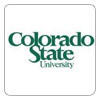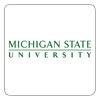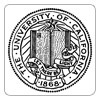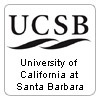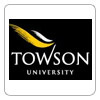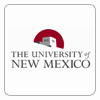Driven by an environmental science literacy framework around learning progressions within core science and mathematics concepts complemented with citizenship, this targeted partnership connects the research and education prowess in the environmental sciences of universities and sites within the NSF-funded Long Term Ecological Research (LTER) Network with teacher professional development in science and mathematics of partner middle schools and high schools. The project extends across the nation, involving four LTER research sites and 22 K-12 schools/districts with direct impacts on over 250 science and mathematics teachers and 70,000 students of highly diverse backgrounds. The work focuses on coupled human-ecosystem interactions in the context of socio-ecological systems as a framework to develop a culturally relevant ecology from both a scientific and educational perspective.
Project Contributions
Learning Progressions & Climate Change
"Our society is currently having serious debates about sources of energy and global climate change. But do students (and the public) have the requisite knowledge to engage these issues as…
"Our society is currently having serious debates about sources of energy and global climate change. But do students (and the public) have the requisite knowledge to engage these issues as…
Promoting Students' Progressions in Science Classrooms: A Video Study
"This study was conducted in a large-scale environmental literacy project. In the project, we developed a Learning Progression Framework (LPF) for matter and energy in social-ecological systems; the LPF contains…
"This study was conducted in a large-scale environmental literacy project. In the project, we developed a Learning Progression Framework (LPF) for matter and energy in social-ecological systems; the LPF contains…
Developing Learning Progression-Based Teacher Knowledge Measures
"This study developed learning progression-based measures of science teachers' content knowledge (CK) and pedagogical content knowledge (PCK). The measures focus on an important topic in secondary science curriculum using scientific…
"This study developed learning progression-based measures of science teachers' content knowledge (CK) and pedagogical content knowledge (PCK). The measures focus on an important topic in secondary science curriculum using scientific…
Learning Progressions in Environmental Science: The impact of a Professional Development on Teacher Practice
"The Framework for K-12 Science Education (NRC, 2012) and the Next Generation Science Standards (NGSS Lead States, 2013) have set ambitious new goals for student learning. They also identified learning…
"The Framework for K-12 Science Education (NRC, 2012) and the Next Generation Science Standards (NGSS Lead States, 2013) have set ambitious new goals for student learning. They also identified learning…
Science Learning Progressions, Discourse, and Teacher Pedagogical Content Knowledge
"The work reported here is part of national project across middle and high schools in the U.S. to develop learning progression frameworks (descriptors and assessments) for three core strands of…
"The work reported here is part of national project across middle and high schools in the U.S. to develop learning progression frameworks (descriptors and assessments) for three core strands of…
Teacher Pedagogical Content Knowledge for Using Learning Progressions
"Over the past decade, research on learning progressions has led to important advances in understanding how student ideas change over time. Yet research into teachers' uses of learning progressions and…
"Over the past decade, research on learning progressions has led to important advances in understanding how student ideas change over time. Yet research into teachers' uses of learning progressions and…
Using Learning Progression Frameworks to Inform Instruction in Environmental Science: Teachers' Efforts to Move Their Students Up Levels
"The purpose of this study is to explore science teachers' implementation of teaching strategies aligned with learning progressions (LP) to enhance their students' environmental science literacy. Learning progressions have been…
"The purpose of this study is to explore science teachers' implementation of teaching strategies aligned with learning progressions (LP) to enhance their students' environmental science literacy. Learning progressions have been…
Learning Progression-based Teaching Strategies (LPTSs) for Environmental Science: Alignment of Instructional Goals with Student Outcomes
"We have four goals in this session: 1) we describe the development and use of learning progressions to explore how students and teachers build environmental science literacy across four strands…
"We have four goals in this session: 1) we describe the development and use of learning progressions to explore how students and teachers build environmental science literacy across four strands…
Quantitative Reasoning Learning Progressions for Environmental Science: Developing a Framework
"Quantitative reasoning is a complex concept with many definitions and a diverse account in the literature. The purpose of this article is to establish a working definition of quantitative reasoning…
"Quantitative reasoning is a complex concept with many definitions and a diverse account in the literature. The purpose of this article is to establish a working definition of quantitative reasoning…
Quantitative Reasoning in Environmental Science: A learning progression
"The ability of middle and high school students to reason quantitatively within the context of environmental science was investigated. A quantitative reasoning (QR) learning progression was created with three progress…
"The ability of middle and high school students to reason quantitatively within the context of environmental science was investigated. A quantitative reasoning (QR) learning progression was created with three progress…
Promise and Problems of Learning Progression-Guided Interventions
"This study aims to examine the promise and problems of learning progression-guided interventions of an important science topic: using the knowledge of photosynthesis and cellular respiration to explain plant growth.…
"This study aims to examine the promise and problems of learning progression-guided interventions of an important science topic: using the knowledge of photosynthesis and cellular respiration to explain plant growth.…
Learning Progression-Based Teaching Strategies in Environmental Science: Teachers' Successes and Struggles in Implementation
"The study presented here is part of a larger project to develop and use learning progression frameworks (NRC, 2007, 2012) to teach core strands of environmental science to secondary school…
"The study presented here is part of a larger project to develop and use learning progression frameworks (NRC, 2007, 2012) to teach core strands of environmental science to secondary school…
Teachers' Use of Learning Progression-Based Formative Assessment in Water Instruction
In this paper, we draw on case studies of two teachers participating in an NSF-supported environmental science learning progression-based professional development project and implementing learning progression-based teaching experiments in their…
In this paper, we draw on case studies of two teachers participating in an NSF-supported environmental science learning progression-based professional development project and implementing learning progression-based teaching experiments in their…
Teachers' Uses of Learning Progression-Based Tools for Reasoning in Teaching about Water in Environmental Systems
"Learning progressions are a potentially powerful tool for supporting students in developing model-based reasoning. Using learning progressions to scaffold student learning in the classroom requires learning progression-based instructional resources. In…
"Learning progressions are a potentially powerful tool for supporting students in developing model-based reasoning. Using learning progressions to scaffold student learning in the classroom requires learning progression-based instructional resources. In…
Students' Inquiry and Argumentation About Carbon Transforming Processes
Inquiry and argumentation are important student practices for science learning. We define inquiry as students taking observations, pattern - finding and developing a model that explains how the world works.…
Inquiry and argumentation are important student practices for science learning. We define inquiry as students taking observations, pattern - finding and developing a model that explains how the world works.…
Evaluating Scientific Arguments with Slow Thinking
The Next Generation Science Standards emphasize engaging students in scientific practices. However, engaging in science does not only mean doing firsthand scientific experiments and investigations. Another practice that all scientists…
The Next Generation Science Standards emphasize engaging students in scientific practices. However, engaging in science does not only mean doing firsthand scientific experiments and investigations. Another practice that all scientists…
Connections Between Student Explanations and Arguments From Evidence About Plant Growth
In this paper we focus on how students connect explanations and arguments from evidence about plant growth and metabolism - two key practices described by the Next Generation Science Standards…
In this paper we focus on how students connect explanations and arguments from evidence about plant growth and metabolism - two key practices described by the Next Generation Science Standards…
Using Learning Progression Frameworks and Assessments to Guide Research and Professional Development
We have three goals in this session: 1) we explore the development and use of learning progression frameworks and assessments focused on environmental science literacy, with strands focusing on carbon…
We have three goals in this session: 1) we explore the development and use of learning progression frameworks and assessments focused on environmental science literacy, with strands focusing on carbon…







